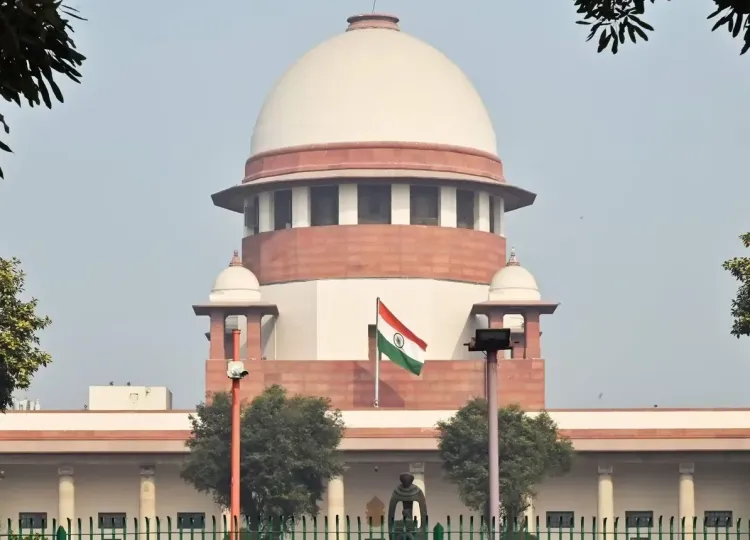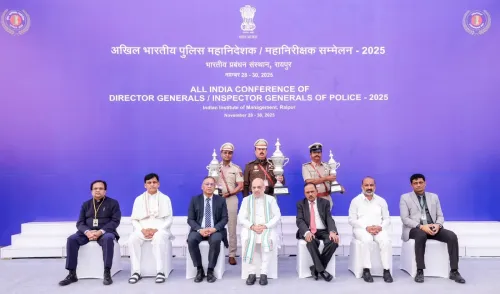Supreme Court Advocates Caution in Granting Bail for Serious Offences Once Trial Begins

New Delhi, December 4 (NationPress) The Supreme Court has emphasized that courts should exercise caution in entertaining bail requests from the accused once the trial for serious offences begins and the prosecution starts its witness examination.
"In general, for serious offences such as rape, murder, dacoity, etc., once the trial starts and the prosecution begins examining its witnesses, the courts, whether it be the trial court or the high court, should be hesitant to entertain the bail application of the accused," stated a bench led by Justice J.B. Pardiwala.
The bench, which also included Justice R. Mahadevan, was reviewing a special leave petition submitted by the complainant-victim challenging the Rajasthan High Court's decision to grant bail to the accused pending trial.
The petitioner lodged an FIR against the accused for offences punishable under Section 376D (gang rape) and Section 342 (wrongful confinement) of the Indian Penal Code at the Nachna police station in Jaisalmer, Rajasthan.
In its controversial ruling, the Rajasthan High Court considered certain inconsistencies between the FIR and the victim's statement recorded under Section 164 of the CrPC, which led to the decision to release the accused on bail.
The Supreme Court noted that over time, it has observed two patterns: either bail is granted after the charges have been framed and just before the victim is to be examined, or it is granted after the victim's oral evidence has been recorded, based on some discrepancies in the deposition, thereby questioning the victim's credibility.
"We believe this practice is incorrect for the lower courts. Once the trial commences, it should be allowed to reach its conclusion, which will result in either the conviction or acquittal of the accused. If the High Court favors the accused and orders their release on bail by reviewing the victim's deposition, it could influence the pending trial and affect the assessment of the victim's oral evidence," it stated.
However, the apex court clarified that only if the trial is excessively delayed without any fault from the accused, the court may justify releasing them on bail due to the infringement of the accused's right to a speedy trial.
Criticizing the granting of bail in serious offences like rape, it remarked that inconsistencies in statements should not be considered a "valid ground" when the victim has yet to be examined and her mother, who is a key witness, has not been addressed either.
Nevertheless, the Supreme Court chose not to overturn the Rajasthan High Court's ruling but imposed strict conditions to prevent the accused from influencing prosecution witnesses or tampering with evidence.
Noting that both the accused and the victim reside in the same village, it ordered the accused to refrain from entering the village until the trial concludes and directed him to provide his new address to the investigating officer at the relevant police station.
Moreover, the Supreme Court instructed the trial court to prioritize this case and aim to resolve it within a span of three months.









